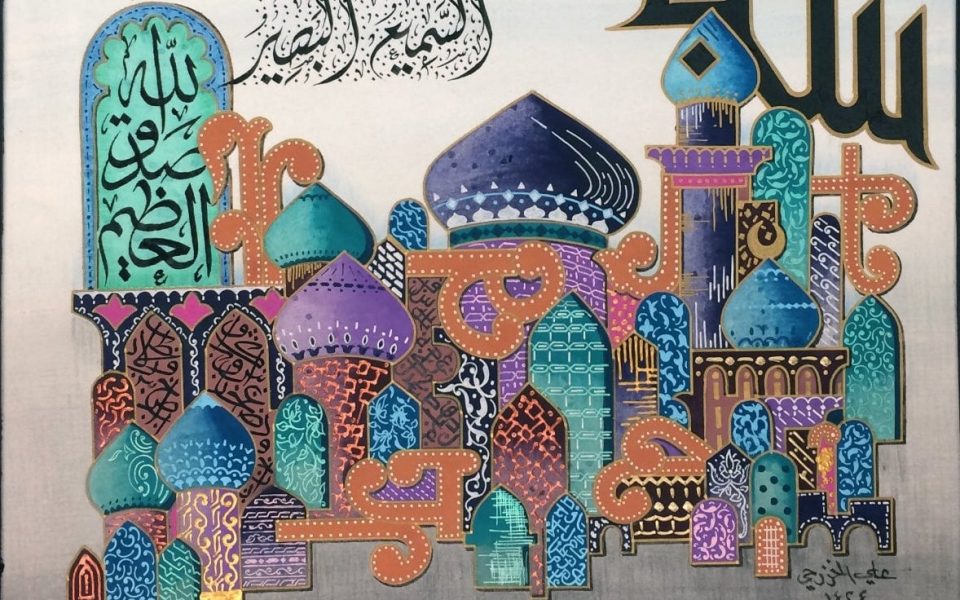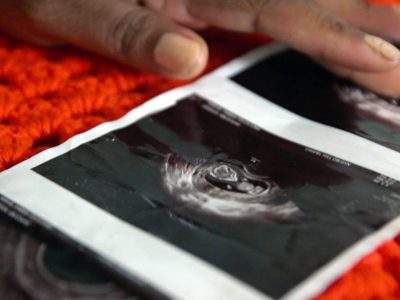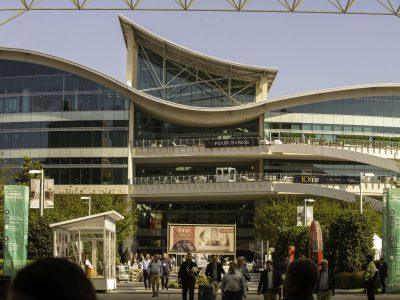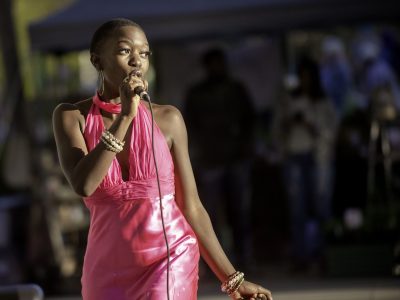For decades, Greensboro has been a primary resettlement community for refugees coming to North Carolina. In the last decade or so, Greensboro’s refugee service providers, including organizations like African Services Coalition, Montagnard Dega Association and New Arrivals Institute, have celebrated World Refugee Day, which will take place this year on June 20.
To celebrate, six artists from five different countries will showcase their paintings, apparel, jewelry, wall hangings and wood carvings at the Greensboro Project Space as part of the Triad Refugee Art Exhibit from June 8-18. Leilani Roughton, executive director of the New Arrivals Institute, answered questions about the exhibit which was organized by Sandra Thompson of the African Services Coalition.
Learn more about the exhibit on the NC Triad World Refugee Day Facebook page.
How did you get involved in creating the exhibit?
The refugee service providers in Greensboro have strived to build strong partnerships to not only provide the best services possible for our refugee communities but to also work together in advocating for refugees and educating the wider Greensboro communities about our refugee populations. While brainstorming ideas on how to celebrate Greensboro’s refugees, we realized that we wanted to include a more personal event than is possible online.
We were speaking about the skills and accomplishments of our clients and realized that while we have had refugee artists participate in other events where they could sell their artwork, we had not ever had an event centering around local refugee artists and showcasing their work.
Who are the artists involved and how did you find them?
Each participating agency spoke to their clients and former clients to identify the artists. The artists participating in the exhibit are Sachi Dely from Vietnam, Kobra Arabzadeh from Afghanistan, Maryam Ghorbani from Afghanistan, Armel Nizayimana from Rwanda, Dinar Teklu from Eritrea and Ali Al Khasrachi from Iraq whose work is shown in the featured photo.
Can you say more about World Refugee Day, the inspiration behind this event?
Refugees are beloved members of our communities and vital to their prosperity. However, many refugees remain unable to fully contribute their knowledge and talents to North Carolina’s workforce because of systemic barriers, including the lack of recognition of their international education and experience, outdated occupational and professional re-credentialing processes and insufficient access to meaningful workforce development and adult education services.
The underutilization of refugee talent has devastating effects on individuals, local communities, and North Carolina’s economy. As we recover and rebuild from COVID, the need to integrate talented refugees into the workforce is increasingly urgent.

The past year has been challenging for our entire community and while last year our celebration was purely virtual, we felt that this year we needed to come together for both in-person and virtual celebrations. As such, in February the various service providers began meeting to discuss how to best celebrate our local refugees.
We wanted to acknowledge the accomplishments of our local refugees and the idea for doing an art exhibit highlighting local refugee artists was born. African Services Coalition, a local refugee resettlement agency, took the lead on planning the exhibit and making sure it is a success.
Why is it so important to showcase refugee talent?
North Carolina has a rich history of welcoming refugees to rebuild their lives here with dignity and safety. Since its inception 41 years ago, the US Refugee Resettlement Program has resettled more than 3 million refugees who are integral to our nation’s cultural and economic fabric, as business owners, workers, faith leaders, teachers, elected officials, artists and community builders.
During the pandemic, refugees have also served as frontline workers, with 176,000 working in the healthcare field and 175,000 working as part of the food supply.
Art is a wonderful way that we can share about ourselves and learn about one another and one another’s cultures and transcends language barriers. It brings people together and can open the door to more conversation and build bridges that people may not even realize needed to be built.
What sort of events will you be doing in the near future?
In addition to the art exhibit, local refugee service providers have joined together in establishing a NC Triad World Refugee Day Facebook page with each agency posting about refugee populations and sharing individual stories from our refugee community members.
On June 20 at 1 p.m., the agencies are hosting a virtual town hall meeting where we will celebrate our Triad refugees and hear from them about a variety of topics including COVID-19, youth empowerment, family separation and workforce development.
We will also be talking about a new workforce development study that is being proposed in the North Carolina House. There are several sponsors of the bill, but it was originally presented to House Majority Whip Jon Hardister, who submitted it as HB 540. The bill would establish a workgroup to study the challenges refugees face in using their professional credentials earned outside the United States and to facilitate their workforce development. This is an important pro-refugee proposal that would help strengthen refugee integration in North Carolina and help them continue to thrive.
Finally, we got confirmation on June 8 that the Governor’s Proclamation for Refugee Welcome Week, June 20-26, has been approved. A separate event we are currently planning for on Sept. 18 at 4 p.m. is the Unity Walk and Festival.
Join the First Amendment Society, a membership that goes directly to funding TCB‘s newsroom.
We believe that reporting can save the world.
The TCB First Amendment Society recognizes the vital role of a free, unfettered press with a bundling of local experiences designed to build community, and unique engagements with our newsroom that will help you understand, and shape, local journalism’s critical role in uplifting the people in our cities.
All revenue goes directly into the newsroom as reporters’ salaries and freelance commissions.





Leave a Reply